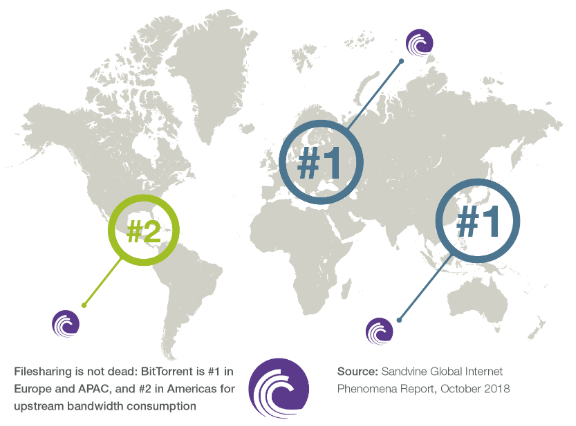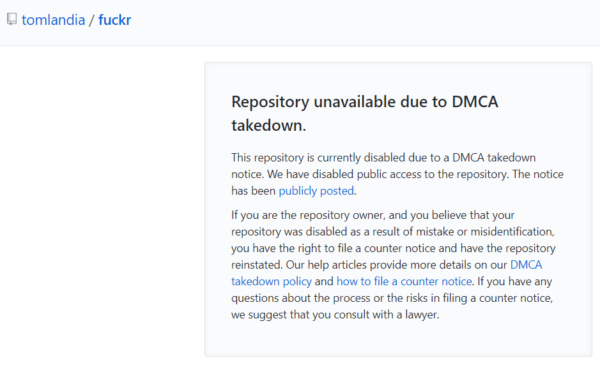BitTorrent Traffic is Not Dead, It’s Making a Comeback
mercredi 26 septembre 2018 à 09:24 Many Internet traffic reports have been published over the years, documenting how traffic patterns change over time.
Many Internet traffic reports have been published over the years, documenting how traffic patterns change over time.
One of the trends that emerged in recent years, is that BitTorrent’s share of total Internet traffic decreased.
With the growth of services such as YouTube and Netflix, streaming started to generate massive amounts of bandwidth. As a result, BitTorrent lost a significant chunk of its ‘market share.’
This trend gradually increased, until recently. In some parts of the world file-sharing traffic, BitTorrent in particular, is growing.
That’s what’s suggested by Canadian broadband management company Sandvine, which has kept a close eye on these developments for over a decade. The company will release its latest Global Internet Phenomena report next month but gave us an exclusive sneak peek.
Globally, across both mobile and fixed access networks file-sharing accounts for 3% of downstream and 22% of upstream traffic. More than 97% of this upstream is BitTorrent, which makes it the dominant P2P force.
In the EMEA region, which covers Europe, the Middle East, and Africa there’s a clear upward trend. BitTorrent traffic now accounts for 32% of all upstream traffic. This means that roughly a third of all uploads are torrent-related.
Keep in mind that overall bandwidth usage per household also increased during this period, which means that the volume of BitTorrent traffic grew even more aggressively.
BitTorrent traffic also remains the top upstream source in the Asia Pacific region with 19% of total traffic. Percentage-wise this is down compared to two years ago, but in volume, it’s relatively stable according to Sandvine.
Other popular file-sharing upload sources in the Asia Pacific region are the Korean P2P app “K grid” (7%) and “Afreeca TV” (2%).
In the Americas, BitTorrent is the second largest source of upstream traffic. It has a market share of little over 9% and is most popular in Latin America. BitTorrent is only a fraction behind MPEG-TS, which is used for backhauling data from video cameras and security systems.

TorrentFreak spoke to Sandvine’s Vice President of Solutions Marketing Cam Cullen, who notes that more details will be released in the upcoming report. However, it’s clear that BitTorrent is not dead yet.
The next question is why BitTorrent traffic is on the rise again? According to Cullen, increased fragmentation in the streaming service market may play an important role.
“More sources than ever are producing ‘exclusive’ content available on a single streaming or broadcast service – think Game of Thrones for HBO, House of Cards for Netflix, The Handmaid’s Tale for Hulu, or Jack Ryan for Amazon. To get access to all of these services, it gets very expensive for a consumer, so they subscribe to one or two and pirate the rest.
“Since these numbers were taken in June for this edition, there were no Game of Thrones episodes coming out, so consider these numbers depressed from peak!” Cullen notes.
And we haven’t even mentioned non-filesharing traffic sources such as cyberlockers and streaming sites, which are even more popular than BitTorrent…
Source: TF, for the latest info on copyright, file-sharing, torrent sites and more. We also have VPN reviews, discounts, offers and coupons.


 Earlier this year Hollywood’s Motion Picture Distributors’ Association stated that site-blocking was
Earlier this year Hollywood’s Motion Picture Distributors’ Association stated that site-blocking was 
 As one of the oldest torrent communities around,
As one of the oldest torrent communities around,